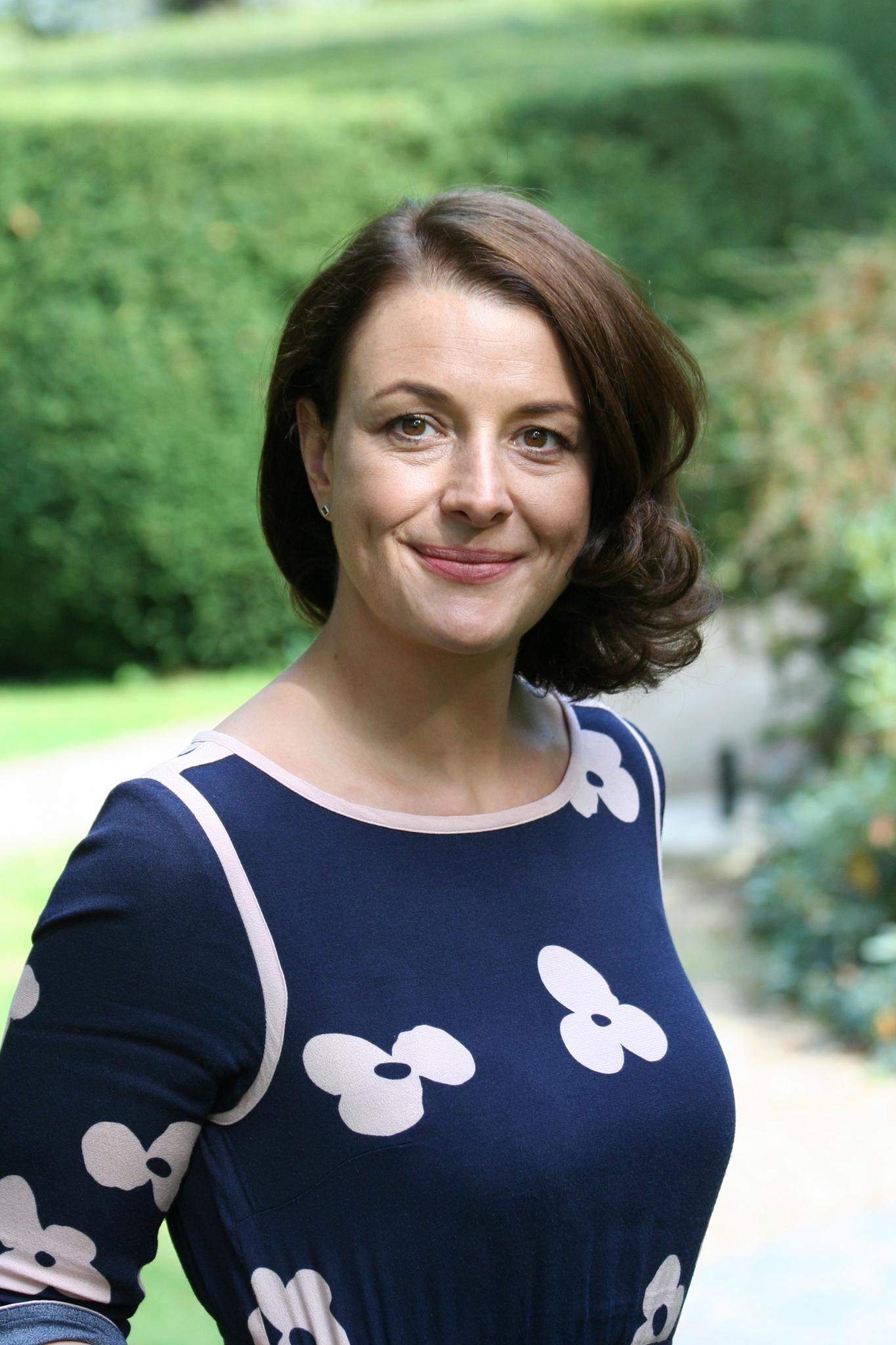Simone Reber
Simone studied Molecular Biology and Biochemistry at the University of Heidelberg, the University of Washington and the Swiss Federal Institute of Technology in Zurich (ETHZ). She obtained her PhD at the University of Heidelberg. For her postdoctoral training Simone joined Tony Hyman's laboratory at the MPI of Molecular Cell Biology and Genetics supported by a fellowship from the Max Planck Society, where she started combining her long-standing interests in molecular cell biology with quantitative theoretical analysis. In 2014/2015 Simone was a fellow at the College for Life Sciences at Wissenschaftskolleg zu Berlin.
In 2015, Simone started her independent research group ‘Quantitative Biology’ at the IRI for the Life Sciences funded by the Excellence Initiative. The research in the lab is driven by the idea that physics-based conceptual approaches can help to understand and describe living systems complexity. The Reber lab takes an interdisciplinary approach by combining expertise in cell-free biochemistry, single molecule biophysics, advanced light microscopy, quantitative image analysis, and continuum mechanics. The long-term goal is to provide important insights into the physical principles that underlie a cell’s organization, which is likely to have important implications for its function and molecular origins of diseases.
Since October 2018 Simone is also a Professor of Biochemistry at the University of Applied Sciences Berlin, her laboratory remains at the IRI for Life Sciences: www.TheReberLab.com
Research
Deep learning for biological imaging & image analysis
Advanced biophotonics
(Biological imaging, image analysis and data visualization)
Selected Publications
- Hirst WG, Fachet D, Kuropka B, Weise C, Saliba K and Reber S (2022) Purification of functional Plasmodium falciparum tubulin allows for the identification of parasite-specific microtubule inhibitors. Current Biology, 32, 1–8.
*Highlighted in Trends in Parasitology: McInally SG & Dawson SC. (2022). Affinity-purified Plasmodium tubulin provides a key reagent for antimalarial drug development. Trends in Parasitology, Vol 38, 5, p. 347-348. - Kletter T, Reusch S, Cavazza T, Dempewolf N, Tischer C and Reber S (2021). Volumetric morphometry reveals mitotic spindle width as the best predictor of mammalian spindle scaling. Journal of Cell Biology, 221 (1): e202106170.
- Meca E, Fritsch A, Iglesia J, Reber S and Wagner B. (2021) Predicting disordered regions driving phase separation of proteins under variable salt concentration. WIAS, ISSN 2198-5855. (Submitted to Biophysical Journal)
- Biswas A, Kim K, Cojoc G, Guck J and Reber S (2021). The Xenopus spindle is as dense as the surrounding cytoplasm. Developmental Cell, 56, 1-5.
*Preview in Developmental Cell by Masahito Tanaka and Yuta Shimamoto “Local body weight measurement of the spindle” Developmental Cell. 2021 Apr 5;56(7): 871-872. - Reusch S, Biswas A, and Reber S (2020). Affinity-Purification of Label-free Tubulins from Xenopus Egg Extracts. STAR Protocols 1, 100151.
- Hirst WG, Kiefer C, Schaeffer E, and Reber S (2020). In vitro Reconstitution and Imaging of Microtubule Dynamics by TIRF and IR Microscopy. STAR Protocols 1, 100177.
- Hirst WG, Biswas A, Mahalingan KK and Reber S (2020). Differences in intrinsic tubulin dynamic properties contribute to spindle length control in Xenopus species. Current Biology, 30-11, 2184-2190.
*Dispatch in Current Biology by Daniel L. Levy "Tubulin Contributes to Spindle Size Scaling” Current Biology, 30(11), pp.R637-R639. - Granada AE, Jiménez A, Stewart-Ornstein J, Blüthgen N., Reber S, Jambhekar A and Lahav G (2020). The effects of proliferation status and cell cycle phase on the responses of single cells to chemotherapy. Molecular Biology of the Cell, 31(8), 845-857.
- Kapoor V, Hirst WG, Hentschel C, Preibisch S and Reber S (2019) Mtrack: Automated detection, tracking, and analysis of dynamic microtubules. Scientific Reports, 7;9(1):3794.
- Camargo Ortega G, Falk S, Johansson PA, Peyre E, Broix L, Sahu SK, Hirst W, Schlichthaerle T, De Juan Romero C, Draganova K, R, Bradke F, Borrell V, Geerlof A, Reber S, Wilsch-Bräuninger M, Nguyen L and Götz M. (2019) A new centrosomal protein regulates neurogenesis by microtubule organisation. Nature; 567(7746):113-117.
More publications: https://www.thereberlab.com/publications/
Third Party Funding
Crossing Boundaries: Molecular Interactions in Malaria (DFG)
International Research Training Program (IRTG 2290)
CELLbioprints (IFAF)
Human-VR-Lab (BMBF)
Guiding Principles of Self-Organization in Biological Systems & Societies
(Berlin University Alliance)
A Quantitative Force Map of the Mitotic Spindle (DFG)
Graduate School
- Tobias Kletter
Biology: Spindle morphometrics during neuronal development
Imaging: Adaptive feedback microscopy
Image analysis: object detection, pixel classification, morphological image analysis, particle
tracking - Ella de Gaulejac
Biology: Functional biochemical adaptation of tubulins
Imaging: Total Internal Reflection Fluorescence (TIRF) Microscopy, Expansion microscopy (ExM)
Image analysis: video tracking, object recognition, motion estimation - Dominik Fachet
Biology: Plasmodium tubulin as a potential drug target in Malaria
Imaging: Total Internal Reflection Fluorescence (TIRF) Microscopy, Expansion microscopy (ExM)
Image analysis: video tracking, object recognition, motion estimation - Mirko Pleitner
Biology: Cellular material properties
Imaging: Optical diffraction tomography
Image analysis: Optical diffraction tonography
Partners
Christian Tischer, Advanced Light Microscopy Facility (ALMF), EMBL Heidelberg
Stephan Preibisch, Janelia Farm Research Campus, USA
Jochen Guck, MPI for the Physics of Light, Erlangen
Infrastructure
Software:
- MTrack (https://github.com/PreibischLab/MTrack)
- spindle3d (https://github.com/tischi/spindle3d)
Microscpes:
- custom-built correlative fluorescence and high-resolution optical diffraction tomography (ODT) set-up
- custom-built optical stretcher for in vitro reconstitution assays
For further Informationen:
https://www.thereberlab.com/

